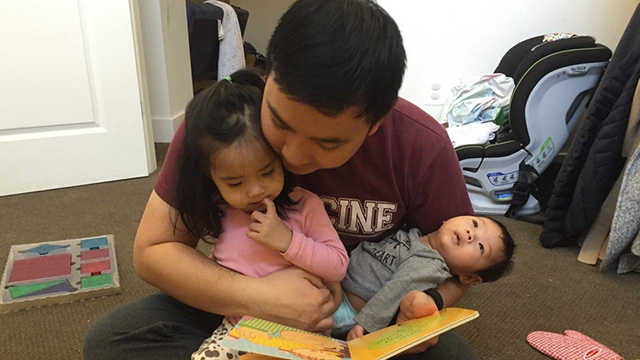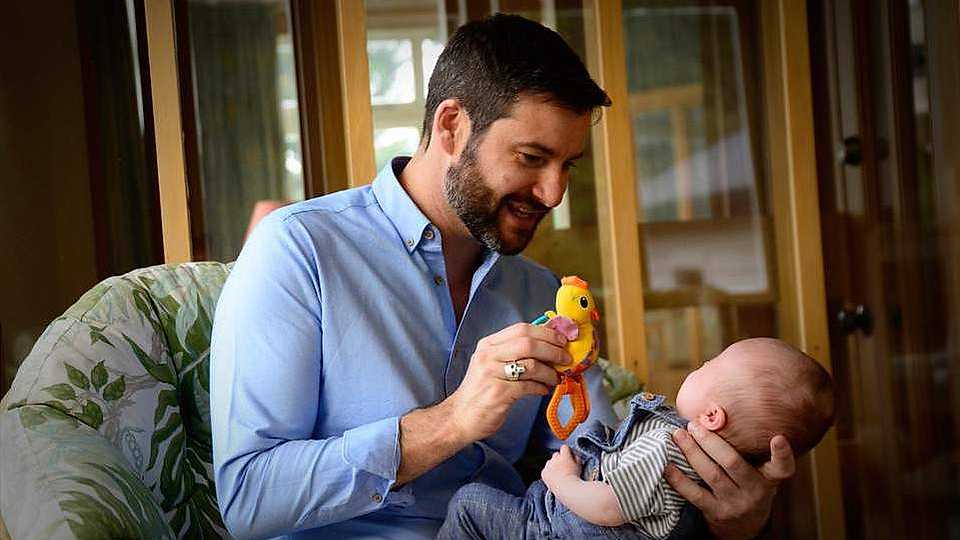American family structures are changing. The number of stay at home dads in the United States has been increasing steadily since the 1970s.
As workplaces continue to evolve toward equal opportunity between genders, where the earning power and career aspirations of American woman are growing, the incidence male primary caregivers of will grow in proportion.
7 Facts about Stay at Home Dads
Here are the seven things you should know about stay at home dads.
What Are the Top 3 Qualities That Elevate Parenting Skills?
Honestly, this is open to interpretation. The top three qualities of any father will vary, depending on the needs of the family. What’s more, the top three qualities of a dad with 2 toddlers are likely different from the top three qualities of a dad of an infant or a teenager. Those qualities could change over time, as well.
Three excellent qualities that every at-home parent will do well to have in their tool belt, though, are patience, creativity and flexibility.
Patience is Kind of a No-brainer

Photo credit by: smartparenting.com.ph
The stay at home dad needs to have patience, he needs to exercise patience, he needs to develop his patience.
When you’re small, things take longer, when you don’t yet understand time, things take longer, when your emotions and imagination run your life, things take longer. Really developing empathy for your kids and their understanding of the world will help deepen your patience.
Creativity Can Be a Total Life-saver

Photo credit by: dailymail.co.uk
Creativity is a very versatile skill for those who have practiced it. Creativity offers another inroad to the developing minds of your children. It is a way to connect with them, to teach them, to turn a difficult circumstance into a learning opportunity.
The creative at-home father can invent games that will resonate for his children, he can get absorbed in his own imagination, spark the imagination of his children, and take creative control of downtime or unexpected circumstances.
Flexibility Goes Hand in Hand with Both of the above Qualities

Photo credit by: hrnews.co.uk
In this context, flexibility means being able to pivot, to think on your feet and change the plan. As much as most men would love to continue down the linear path they planned on this morning, the meandering mind of their 5-year old son is very busy making connections and taking severe tangents, all day long.
Be willing to indulge some of these tangents, to find joy in your child’s sense of wonder and discovery and allow yourself to veer off course now and again.
You will have great days, where you are slaying dragons, where everything is a great idea, and every street light turns green for you. Those are the best days. There will be challenging days where getting your kids dressed is the highlight of the days’ ambitions. You’ve got to learn to roll with the punches, to give your creativity a chance to shine, to find patience in the face of adversity.
Speaking of habits… another clutch tool of an ace stay at home dad involves structuring the day.
Sample Schedule of a Typical Weekday
- 6:00AM Wake up, coffee, cook breakfast, send wife to work.
- 7:00AM Feed kids.
- 8:00AM Chores for the day (laundry, dishes, water the plants).
- Include the kids in chores as early and as much as possible. You’ll be shocked at how well a young child can separate laundry by color.
- 9:30AM Playtime! This can in the house, at a nearby park, or on the way to an activity in town.
- 11:00AM Lunch.
- 12:00PM Naptime. You can use this time for yourself, reading, calling friends and family, working on a project, catching up on household to-dos.
- 2:00PM Afternoon activity, errands, groceries. Try planning an excursion into the errand route.
- 4:00PM Home, snacks, playtime. Short afternoon nap, if applicable.
- 5:30PM Start to work on dinner.
- 6:30PM Dinner.
- 7:00PM Bath time.
- 7:30PM Bedtime
- 8:00PM Parent time.
Being a full-time parent is an undeniably busy endeavor. Weekends may be more relaxed, but looking at the schedule above, the days are full. There will be chaos. Running rampant comes naturally to children. Schedules do not. The kids will lose shoes and socks, get cereal stuck to their face, pose hundreds of questions, and just generally introduce uncertainty into every aspect of your well-laid plans. Be prepared.
It may be advantageous to leave parts of the schedule open-ended – there’s no irony in planning for spontaneity and exploration.
Masculinity Check: Set Your Ego and Will aside, the times Are A-changin’
A quick google search for “stay at home dad” blog posts will lead you to many destinations, interviews, stories. It is fascinating to note that many full-time dads come from hyper-masculine backgrounds: the Armed Forces, construction, professional athletes. Is the masculinity of these men compromised by the fact that they push a stroller around or shop for groceries?
It’s not.
Your masculinity is only as fragile as you allow it to be. It is all in your head.
A supportive partner who understands the demands of rearing children and recognizes what your efforts contribute to the household is essential. This will help in shrugging off whatever outdated notions of family structure and tenuous masculinity you encounter in the world.
Don’t be too shocked if close friends don’t respond how you might prefer at first. They’ll come around.
Caring for your children, teaching them, loving them, feeding them, these are not inherently feminine activities. While they may be historically associated with females, the acts themselves are just as effective if undertaken by a male as by a female.
Having a clear understanding of why you personally are the primary caregiver will also play a major role in keeping your ego in check and your masculinity intact. The more you and your partner/wife are able to own your family’s choices, the less you will draw them into question.
Teach Your Kids Your Values, by Example, Every Single Day
Being a full-time parent provides you with the unique opportunity to teach your children your values in everyday situations. Those qualities you and your partner dreamed about instilling in your kids when you were pregnant or planning to have children have now become realities. They are now responsibilities.
If you want your kids to be kind, you have to teach them kindness. YOU have to be kind. If you want your kids to help others, you must join them in helping others when the opportunities arise. The only way your children will learn and retain these values and qualities is by learning them from you – by you truly representing these values in daily practice.
What to Do If You Get to Feeling Lost, Bummed, or Alone
Feeling isolated is very common for stay at home parents. It is a potentially isolating situation to spend 8-10 hours a day with a tiny, needy, pre-verbal human. You’ll crave interaction with other adults. You should give it to yourself.
You’ll be doing your children a disservice by neglecting your adult friendships and allowing your community to wane. Children need to learn how to interact with non-parental adults as well. They must be socialized, not just with their peers, but also with your peers.
Take heart – there are many resources for developing and getting involved in stay at home dad communities, stay at home parent communities, and just plain neighborhood groups. You can find meetups and associations of all these interest groups. Don’t find what you need? Start your own local group!
The benefits of developing and cultivating a network of adult friends are far-reaching and practical. You will gain babysitters that can hang with your kids for an hour while you run to the gym. You will gain the advice and techniques of other parents. You can learn from their mistakes, without having to make them yourself.
Beyond that, you’ll get a broader sense of what parenting is and come to understand that there are many ways to achieve the common goals that so many parents want to achieve.
The Crisis Every Parent Knows: Am I Doing This Right?
It’s true, this is a question that plagues new mothers, stay at home dads, adoptive parents and parents with many children alike. Am I doing this right? Am I making good choices for my kids?
Here’s where that network of adult friends, other parents and full-time parents will really become the support system that you may need. All that shared knowledge, experience and anecdotal communication will ground you to the fact that you are not alone.
You can gain confidence by communicating and sharing within this network that you’ve worked to build.
4 Great Daily Supplies Suggested by Other Winning Full-time Parents
Quick Parting Words for Champion Full Time Dads
Men are still a minority parenting demographic. There’s a sea of change underway, however, and the prevalence of new family structures is increasing, as is the awareness and cultural acceptance. Conventional wisdom is coming to understand that stay at home dads are good parents, that they face the same obstacles as mothers, and that they find the same strengths as any parent.
For all you rad dads out there – identify your obstacles and difficulties, and then get to building a supportive community around you. Find that village to help raise your children.



